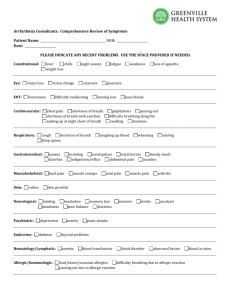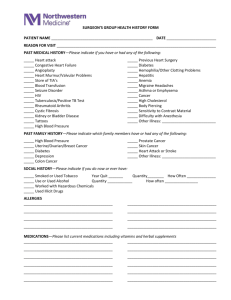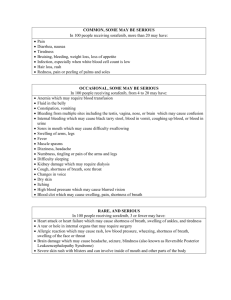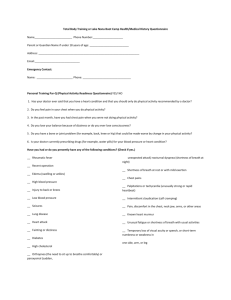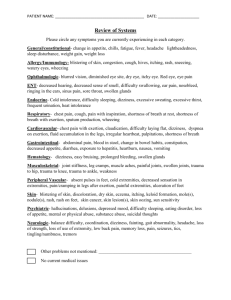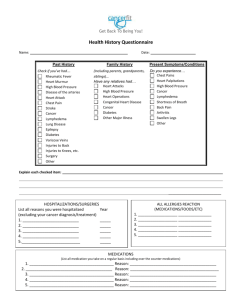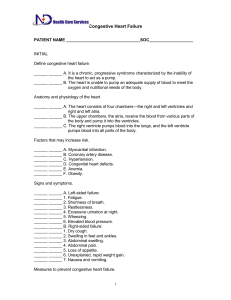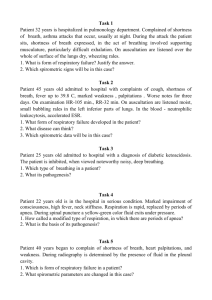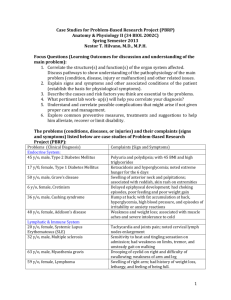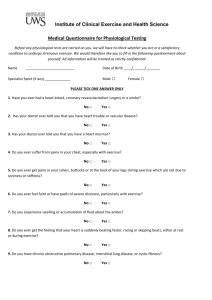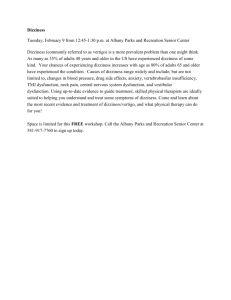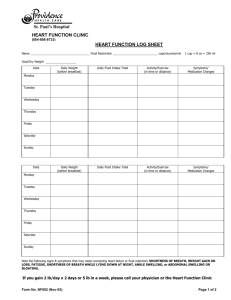Patient Education: Understanding Heart Failure
advertisement
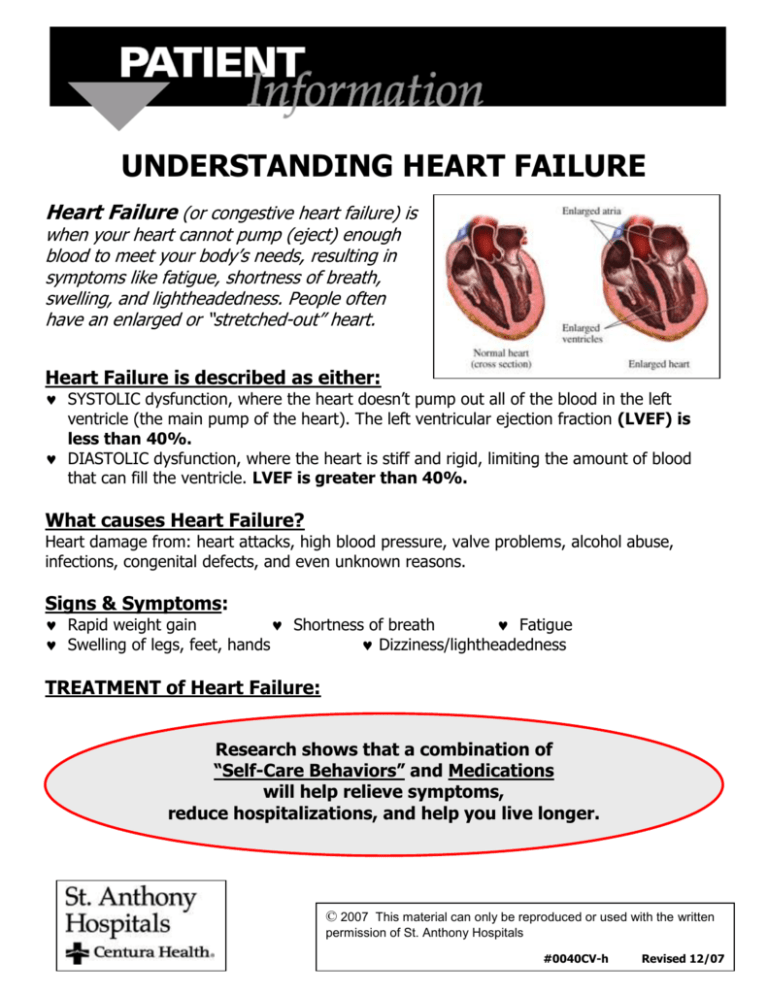
UNDERSTANDING HEART FAILURE Heart Failure (or congestive heart failure) is when your heart cannot pump (eject) enough blood to meet your body’s needs, resulting in symptoms like fatigue, shortness of breath, swelling, and lightheadedness. People often have an enlarged or “stretched-out” heart. Heart Failure is described as either: SYSTOLIC dysfunction, where the heart doesn’t pump out all of the blood in the left ventricle (the main pump of the heart). The left ventricular ejection fraction (LVEF) is less than 40%. DIASTOLIC dysfunction, where the heart is stiff and rigid, limiting the amount of blood that can fill the ventricle. LVEF is greater than 40%. What causes Heart Failure? Heart damage from: heart attacks, high blood pressure, valve problems, alcohol abuse, infections, congenital defects, and even unknown reasons. Signs & Symptoms: Rapid weight gain Shortness of breath Fatigue Swelling of legs, feet, hands Dizziness/lightheadedness TREATMENT of Heart Failure: Research shows that a combination of “Self-Care Behaviors” and Medications will help relieve symptoms, reduce hospitalizations, and help you live longer. © 2007 This material can only be reproduced or used with the written permission of St. Anthony Hospitals #0040CV-h Revised 12/07 SELF-CARE BEHAVIORS 1. Weigh yourself every day, in the morning after going to the bathroom: Write it down! Call your physician if you gain 3 pounds overnight OR 5 pounds in 5 days. 2. Low Salt Diet - 2000 mg: (2 grams) of sodium (salt) each day. Take the salt shakers off the table, and use other seasonings instead. Make sure you read nutrition labels and add up your salt intake. 3. Exercise: Aim for 30 minutes total of activity every day. Start slow, and build up to this. Stop if you have chest pain, shortness of breath, nausea, or dizziness. 4. Quit Smoking: Smoking reduces the oxygen in your blood, and makes your heart beat too fast. Ask your health care provider for information on quitting if you are a smoker. 5. Call your Provider (MD, NP, PA) for: Weight gain as above, swelling, worsened breathing, inability to do your usual activities, dizziness, lightheadedness 6. CALL 911 for: chest pain/tightness, extreme shortness of breath, feeling like you’re going to pass out MEDICATIONS Most patients with heart failure need to take a combination of several medications in order to see the benefits of having fewer symptoms, avoiding hospitalization, and living longer It’s very important to take your medicines exactly as prescribed, and to not skip doses! BETA BLOCKERS: (Block stress hormones that are harmful to the heart) *metoprolol (Lopressor, Toprol) *carvedilol (Coreg) *atenolol (Tenormin) Side effects – low blood pressure, dizziness, low heart rate, tiredness ACE INHIBITORS & ARB’s: (Block stress hormones that are harmful to the heart) (Angiotensin Converting Enzyme Inhibitors & Angiotensin Receptor Blockers) ACE Inhibitors: *lisinopril (Zestril, Prinivil) *enalapril (Vasotec) ARB’s: *losartan (Cozaar) *valsartan (Diovan) *irbesartan (Avapro) Side Effects – low blood pressure, high potassium, swelling of mouth/lips, dry cough ALDOSTERONE ANTAGONISTS: (Block stress hormones that are harmful to the heart) *spironolactone (Aldactone) *eplerenone (Inspra) Side Effects: - low blood pressure, high potassium, breast enlargement or tenderness with spironolactone (rare) DIURETICS/WATER PILLS: *furosemide (Lasix) (Rid body of extra fluid) *bumetanide (Bumex) *metolazone (Zaroxolyn) Side effects – low blood pressure, dizziness, frequent urination, low potassium DIGOXIN: (Slows heart rate, helps pump more blood with each beat) *digitalis (Lanoxin, Digoxin, Digitek) Side Effects – slow heart rate, yellow-tinted vision, loss of appetite, stomach pain, nausea, diarrhea, tiredness, weakness.
